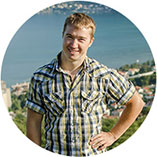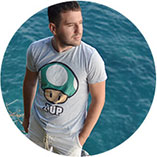Иностранные языки
Разобрать все тесты в English Grammar Test
Я стала брать частные уроки по английскому и учитывая их стоимость мне хотелось бы, чтобы время урока не уходило на всякие глупости, которые я давно должна была выучить сама, такие как conditionals, например.
Поэтому я постараюсь изучить по максимуму то, что могу.
Критерий завершения
Все тесты пройдены
-
Word order
-
Articles
-
Present tenses
-
Past tenses
-
Future tenses
-
Passive voice
-
Confusing words
-
Phrasal verbs
-
Irregular verbs
-
Linking words
-
Adjectives
-
Adverbs
-
Gerunds and infinitives
-
Noun plus preposition
-
Nouns
-
Some, any, a lot of, many, much etc.
-
Expressing hypothetical meaning
-
Word formation
- 1753
- 28 ноября 2018, 04:04
Не пропустите новые записи!
Подпишитесь на цель и следите за ее достижением



